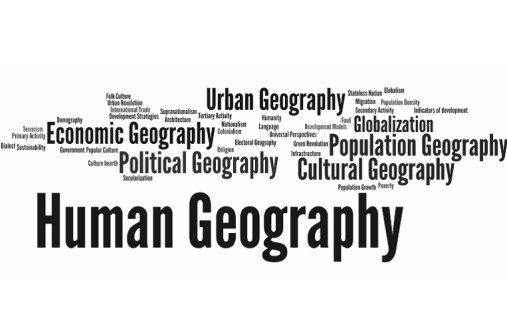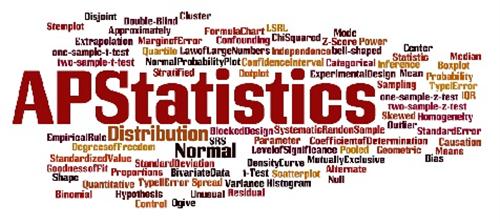AP Human Geography is a course offered by the College Board as part of the Advanced Placement program. It is designed to introduce high school students to the systematic study of patterns and processes that have shaped human understanding, use, and alteration of the Earth’s surface. The course covers a broad range of topics, including population, cultural patterns, political organization, agricultural and rural land use, industrialization, and urbanization. This article explores the key components of AP Human Geography, its importance, and strategies for success.
What is AP Human Geography?
AP Human Geography focuses on the spatial aspects of human existence. It examines how humans have interacted with their environment and how these interactions have shaped the cultural and physical landscapes. The course aims to develop students’ geographic skills, such as map reading and interpretation, spatial data analysis, and an understanding of geographic concepts and models.
The curriculum is structured around seven major topics:
- Geography: Its Nature and Perspectives: This introductory unit covers the basic concepts of geography, including map types, scale, projection, and geographic tools. It sets the foundation for understanding the spatial aspects of the subsequent units.
- Population and Migration: This unit explores population dynamics, including distribution, density, growth, and demographic transition. It also examines migration patterns, push and pull factors, and the impacts of migration on both origin and destination regions.
- Cultural Patterns and Processes: Students study the development and diffusion of cultures, languages, religions, and ethnicities. This unit also addresses cultural landscapes and the processes of cultural change and globalization.
- Political Organization of Space: This unit examines political geography, including the concept of the nation-state, territoriality, boundaries, geopolitics, and the impact of political decisions on spatial organization.
- Agriculture and Rural Land Use: Students learn about the origins and diffusion of agriculture, different agricultural practices, and the impact of agriculture on the environment and society. This unit also covers rural land use patterns and settlement types.
- Industrialization and Economic Development: This unit focuses on the origins and diffusion of industrialization, economic sectors, patterns of economic development, and the impact of industrialization on the environment and society.
- Cities and Urban Land Use: The final unit examines urban geography, including the development and functions of cities, urban models, and issues related to urbanization, such as suburbanization, gentrification, and urban planning.
Importance of AP Human Geography
AP Human Geography is significant for several reasons:
- Global Awareness: The course helps students develop a deeper understanding of global issues, including population growth, migration, cultural conflicts, and environmental challenges. This awareness is crucial in an increasingly interconnected world.
- Critical Thinking: By analyzing spatial data and geographic patterns, students enhance their critical thinking and problem-solving skills. They learn to make connections between different regions and scales of analysis, from local to global.
- Interdisciplinary Connections: AP Human Geography intersects with various disciplines, such as history, economics, sociology, and environmental science. This interdisciplinary approach enriches students’ overall educational experience and prepares them for diverse academic and career paths.
- College Readiness: As an Advanced Placement course, AP Human Geography prepares students for college-level coursework. It develops skills in research, writing, and analysis, which are essential for success in higher education.
Strategies for Success in AP Human Geography
Succeeding in AP Human Geography requires a combination of effective study habits, critical thinking, and active engagement with the material. Here are some strategies to help students excel in the course:
- Stay Organized: Keep track of assignments, readings, and important dates. Use a planner or digital tool to manage your time effectively and avoid last-minute cramming.
- Engage with the Material: Actively participate in class discussions, ask questions, and seek clarification on complex topics. Engage with the material by relating it to current events and real-world examples.
- Develop Geographic Skills: Practice reading and interpreting maps, graphs, and spatial data. Familiarize yourself with geographic terminology and concepts. Use online resources and geographic information systems (GIS) tools to enhance your understanding.
- Review Regularly: Regularly review your notes and readings to reinforce your understanding. Create summary sheets or concept maps to organize information visually. Use flashcards for key terms and concepts.
- Practice Free-Response Questions: The AP Human Geography exam includes free-response questions that require critical thinking and written analysis. Practice answering these types of questions to develop your writing skills and improve your ability to articulate geographic concepts.
- Use Study Resources: Utilize textbooks, online resources, review books, and practice exams to prepare for the AP exam. The College Board website offers valuable resources, including past exam questions and scoring guidelines.
- Form Study Groups: Collaborate with classmates to review material, discuss challenging concepts, and quiz each other. Study groups can provide different perspectives and enhance your understanding of the material.
Conclusion
AP Human Geography offers a comprehensive introduction to the study of human patterns and processes that shape our world. By exploring diverse topics such as population, culture, politics, agriculture, industry, and urbanization, students gain valuable insights into the complexities of human-environment interactions. The course not only fosters global awareness and critical thinking but also prepares students for future academic and professional endeavors. By staying organized, engaging with the material, and utilizing effective study strategies, students can succeed in AP Human Geography and develop a lifelong appreciation for the field of geography.









